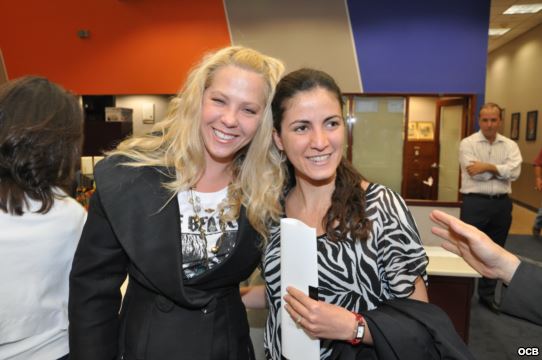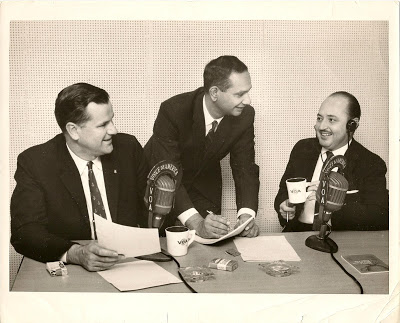Behind the Scenes: Gina Barroso

“The death of Oswaldo Paya was a huge moment for me. He’s a name that I remember hearing growing up. My parents mentioned him often. He was a household name. He died in a car crash in 2012. I cried. One day you are writing about his work and the impact. The next day, his death. I found out about his death while at work at OCB. Initially, the staff worked to confirm the news. We had all of the monitors tuned to news on his death. Everyone went live with the news, it was that huge. We were one of the first to broadcast the news. The Cuban government, at the time, said his driver lost control of the vehicle and ran into a tree. Not everyone believes that story. We always felt there was foul play.
Oswaldo Paya was a wonderful human being, a spiritual man. He never gave up fighting for democracy. To lose someone like that is a huge loss to the entire country. Cubans on the island who are aware of him were touched by his death. He was very involved with the Catholic Church. When he died the Pope sent a letter of condolence to his family. Through the church in Cuba, many young people knew who he was.
What is making his legacy even more important now is his daughter. She is a world traveler and visited the White House and the U.N. to carry on his work. She is making sure that next generation of Cubans will know his importance.
One week, Oswaldo Paya’s daughter, Rosa María, visited the OCB studios. Her visit to the studios was emotional and all of a sudden, she turned, and came to me and gave me a hug. I have no idea why she chose to hug me. I could not help myself and started crying. We are family and we are here for our family in Cuba. We are not going to stop until all Cubans have the same liberty and opportunities.
We are the only thing they know, we are their voice.”
__________________
Gina Barroso works as a Public Affairs Specialist for the Office of Cuba Broadcasting in Miami, Florida. The Office of Cuba Broadcasting (OCB) oversees the operations of Radio and TV Martí from its headquarters in Miami, Florida. Radio and TV Martí serve as consistently reliable and authoritative sources of accurate, objective, and comprehensive news for people in Cuba, where media are controlled and highly censored by the authorities.
Leave a comment
